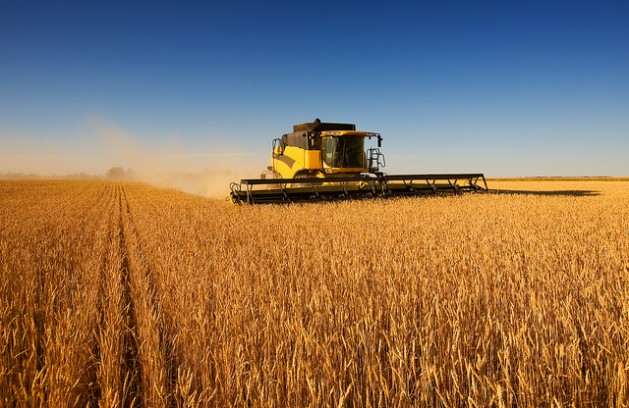Market Lords, Much More than a War, Behind World’s Food Crisis — Global Issues


MADRID, 11 November (IPS) – While grain exports continue to steadily flow to the world market as of July 2022, the agreement brokered by Turkey between Russia and Ukraine to resume With shipments of grain and fertilizer from both countries, food prices are still skyrocketing everywhere. How that?
The most understandable answer from politicians and reputable media is that it was all about Russia’s invasion of Ukraine last February.
Another argument they use is that it was Russia that disrupted its gas and oil exports, ignoring the fact that it was the US-led Western-led sanctions that had cut it significantly. This flows to most European markets, causing the cost of energy, food transportation, food to increase steadily. et cetera.
Such answers, however, clearly overlook another structural cause: the shocking speculations of the dominant market.
“It is true that the Russian invasion against Ukraine has disrupted global markets, and prices are skyrocketing. But it also tells us that the market is part of the problem, “last April warned Michael Fakhri, United Nations Special Rapporteur on the right to food, 2022.
Political failure
In his report to the United Nations Security Council, the Special Rapporteur stated that famine and famine, like conflicts, are always the result of “political failures”.
Specifically, Michael Fakhri explains, “The market is amplifying shocks rather than absorbing them… the spike in food prices is not caused by supply and demand problems; that is due to price speculation in the commodity futures market.”
Block solutions
He said the current food crisis was caused by “international failures”, and drew two conclusions:
– For more than two years, people and civil society organizations around the world have been sounding the alarm about the food crisis. For more than two years, they have called for a coordinated international response to the food crisis.
– However, Member States have refused to lobby Rome-based agencies and other United Nations organizations for a coordinated response to the food crisis.
Based on Michael FakhriA number of Member States and civil society organizations attempted to get the CFS to adopt a resolution last October that would make it the venue for global policy coordination around the food crisis.
“And some powerful nations – some members of the P5 – actively block that initiative. This undermines the world’s ability to respond to the food crisis.”
Food “nationalism”
Meanwhile, on November 7, 2022 profile by Focus on the Global SouthShalmali Guttal warns that a perfect storm is raging in the global food system, pushing food prices to record highs and increasing hunger.
“As international organizations struggled to respond, some governments used ‘food nationalism’ by placing export bans to preserve their own food supplies and stabilize prices. chief….”
In their profile, researchers from Focus on the Global South write about various aspects of the current crisis, its causes and impacts on countries in Asia.
Corporations fuel the crisis
These include regional analysis, case studies from Sri Lanka, the Philippines and India, “the role of corporations in driving the crisis, and the flawed response of international organizations such as the Trade Organisation. World (WTO), Bretton Woods organizations and UN agencies. “
recently released State of Food Safety and Nutrition in the World 2022 (SOFI 2022) report presents a sobering picture of the failure of global efforts to end hunger, malnutrition and food insecurity. According to SOFI 21, “even before the Covid-19 pandemic hit in 2020, hunger levels in the world were appallingly high.”
Market concentration and speculation
In their recent analysis: A food crisis not created by them, CP Chandrasekhar and Jayati Ghoshspeak:
Governments, multilateral and international agencies are largely blaming the current world food crisis on global supply shortages arising from the war in Ukraine, ignoring the lingering effects. in low- and middle-income countries by “forces of concentration and market speculation, globally defined macroeconomic processes and the collapse of livelihood opportunities affecting this country in the post-Covid world.”
The world food system is dominated by the market
At the heart of periodic food price fluctuations, food crises, and hunger and food insecurity are the “market structures, regulations, and commercial and financial arrangements that drive the food system.” globally, while allowing market concentration and financial speculation in commodity markets.”
excessive speculation
Furthermore, an analysis of International Panel of Experts on Sustainable Food Systems (IPES-Food .)) indicates that the kind of “excessive speculation” seen in 2007-2008 that led to a spike in food prices may return.
“Multi-level market concentration and financial speculation in commodity markets have played a pivotal role in past and present food crises and present serious threats to with the exercise of the Right to Food”.
In addition, a historical examination of food crises over the past 50 years by the professor Jennifer Clapp shows that the global industrial food system is more vulnerable to price fluctuations and more prone to crises because of three interrelated manifestations of corporate concentration:
First, the global industrial food system relies on a small number of staple grains produced by highly industrialized farming methods, leaving the system vulnerable to events only affects some crops and increases the input costs of industrial farms.
Second, a small number of countries specialize in the production of essential grains for export, on which many others depend, including many of the poorest and most food-insecure.
– And third, global cereal trade is dominated by a small number of companies in highly volatile, highly financialized commodity markets (IPES-Food 2022; FAO 2022; OECD and FAO 2020) .”
big corporation
On this, Jennifer Clapp, Professor and Chair of Canadian Studies, School of Environment, Resources and Sustainabilityexplains that “a handful of corporations have a high degree of influence over the global industrial food system, aided by mergers and acquisitions to form giant mega-corporations, for allowing greater horizontal and vertical centralization, as well as influence on national and global governance and policymaking.”
According to Clapp, “four grain corporations – Archer-Daniels Midland, Bunge, Cargill and Dreyfus, known as ‘ABCD’ – control 70-90% of the grain trade.”
As “interdisciplinary value chain managers”, these grain giants may collect large amounts of market data, but are under no obligation to disclose this information, and may hold shares for until the price peaks, the expert explained.
“And in the three global food crises studied, financial speculation drove prices up sharply, leaving hundreds of millions of people without access to food.”
© Inter Press Service (2022) — All rights reservedOrigin: Inter Press Service




